A Memorial and a Name
It’s critical that evangelical Christians understand the Holocaust, says Yad Vashem U.S. representative and pastor, Mark Jenkins.
I recently ran across a Pew Research study that sought to discover what Americans know about the Holocaust. It’s not good news for evangelical Christians.
The survey contained four extremely basic multiple-choice questions:
1. How many Jews were killed in the Holocaust?
2. When did the Holocaust happen?
3. What were Nazi-created ghettos?
4. How did Hitler become chancellor of Germany?1
The respondents were categorized by gender, age, ethnicity, region of the country, religious affiliation, political affiliation, and education. Forty-eight percent of all Americans surveyed got at least three of four questions correct.
The religion category interested me the most. Not surprisingly, Jewish respondents got the most correct answers, 3.2 out of 4. Second place surprised me: It went to atheists and agnostics, with 3.1 correct out of 4. Third were mainline Christians, with 2.3, followed by Mormons, with 2.2.
But tied near the bottom were Catholics and evangelicals, who both scored 2.1—barely better than the religious group called “Nothing in particular,” which scored 2 out of 4.
Clearly, evangelical Christians are severely deficient when it comes to knowledge about the Holocaust, and they need a source to help them understand it better.
In 1953, five years after the birth of the State of Israel, the Knesset enacted the Yad Vashem law creating a permanent Holocaust memorial, archive, and education center. The name Yad Vashem, which literally means “a memorial and a name,” comes from Isaiah 56:5: “To them I will give in My house and within My walls a place and a name better than that of sons and daughters; I will give them an everlasting name that shall not be cut off.”
Within the International Relations Division of the World Holocaust Remembrance Center is the Christian Friends of Yad Vashem, launched in 2006 as an educational initiative to help Christians understand the genocide of World War II.
Mark Jenkins, a believer and pastor who lives in Richmond, Virginia, is the U.S. representative of the Christian Friends of Yad Vashem. I interviewed Mark recently, asking him to help us become better aware of that terrible time in Jewish history.
STEVE: Welcome, Mark. Would you start off and explain your title?
MARK: I am a representative of Christian Friends of Yad Vashem. I help the church understand why we as Christians should care about the Holocaust.
STEVE: Why should Christians care about the Holocaust?
MARK: The Holocaust, antisemitism, and Israel’s existence are inexorably linked together; and getting educated about them is important, especially for Christians. I learned this on my first trip to Israel. I went with a leader of AIPAC [American Israel Public Affairs Committee] who told me something I will never forget. He said, “You will never understand Israel unless you understand the Holocaust.” That is so true. The Holocaust was a unique and horrific event that occurred over 80 years ago, yet it still impacts Israel today.
It demonstrated so clearly that the Jewish people could not rely on any other nation for their security. It demonstrated that they needed their own state, a state with defensible borders they could protect. Today, when Iran threatens to annihilate Israel, or when their enemies say they want to push them into the sea, they take those threats seriously. They remember it was not that long ago when the Nazis tried to do the same thing.
STEVE: How did you get involved with Yad Vashem?
MARK: Well, you know, Steve, my background is TV production. I had experience working with various networks, including CNN, History channel, and Discovery Channel. My life changed when a local pastor recruited me to manage a regional broadcast ministry. I eventually became ordained, and God led me to a local church where I became a pastor.
Thirty years ago, there was a large Holocaust-survivor community in Richmond. I had the opportunity to work on the Spielberg Project, taping their stories. I’ve got to give Steven Spielberg credit because he tapped into something at a time before survivors began to open up to cameras and tell their stories. Until then, they kept their stories hidden.
Spielberg [director/producer of the Academy Award-winning Holocaust film Schindler’s List] created a way (using a camera) to get them to talk, and many realized they were really talking to their grandkids who would remember them. I realized the more I got involved that these were real people. They had names. They had lives. They had histories, and they survived. These taping sessions prepared me for the encounters I would have in Israel.
From that point, I felt like God said, “This is where I need you to be working—with and around the Jewish people.” I read many books on Judaism and the Jewish people, including your book [Jewish Culture and Customs]. Thank you very much.
STEVE: Did any of your Jewish contacts want to talk to you about your faith?
MARK: Yes, one in particular. He was a high-up military person from Israel. He came to me privately and told me he had questions, and nothing was off the table. We talked for several hours. I will never forget his first question: “What is the deal with evangelicals?” That conversation provided both of us with quite an education.
STEVE: You must have heard Whoopi Goldberg’s statement that the Holocaust was “not about race.” She needs an education. What would you tell her if you had a chance?
MARK: Well, I would echo what our senior guy [Dani Dayan, chairman of Yad Vashem] said to her after she gave her apology: “We must not mince words. People need to know what led to the Holocaust: the unprecedented, murderous drive to annihilate the entire Jewish people, their religion, culture, and values by the Nazis and their collaborators, primarily due to the unfounded belief that Jews were their foremost and extremely dangerous racial enemy. While her apology and clarification are important, I extend a personal invitation to Ms. Goldberg and other influencers to learn more about the causes, events, and aftermath of the Holocaust here at Yad Vashem, the World Holocaust Remembrance Center in Jerusalem.”
STEVE: What would be the one thing you would like to get across to Christians concerning the Holocaust?
MARK: Here it is: We can’t let this happen again. We can’t be bystanders because we are in it with the Jewish people. If we believe our Scriptures, if we believe the apostle Paul, we are grafted in. We are one new man. We have a shared history and a shared destiny.
Yes, there is a role in the plan of God for the church. Yes, there’s a plan of God for the Jewish people. But we are linked, and don’t think persecution today is just against the Jews. Dennis Prager said the Christian is the “new Jew” in the sense that we’re seeing an increase in Christian persecution.
I summarize it this way: Anyone who bows before the God of Israel is going to see persecution because the enemy of the God of Israel and the enemy of the God of the church is the same enemy. We are in it together.
Mark Jenkins can be reached by email at [email protected].
ENDNOTE
-
- “What Americans Know About the Holocaust,” Pew Research Center, pewforum.org, January 22, 2020 (tinyurl.com/PewHolocaust).
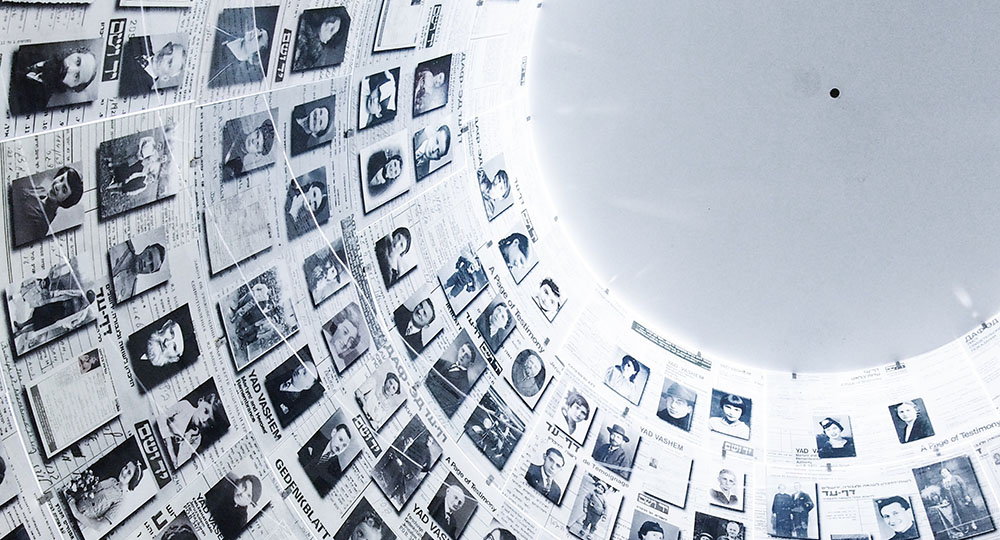

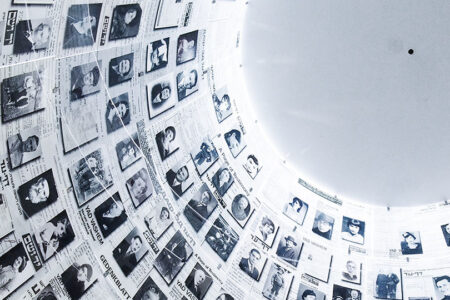
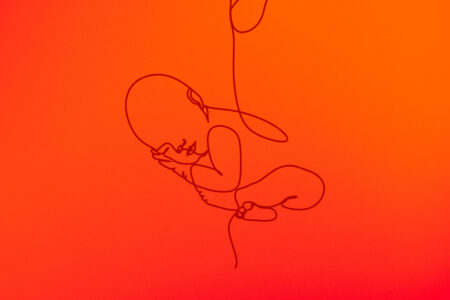
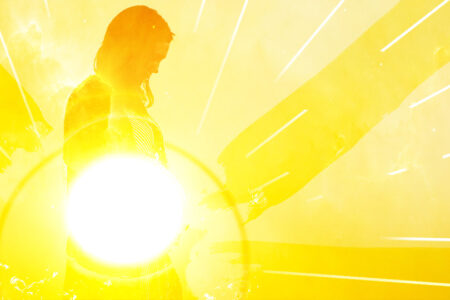

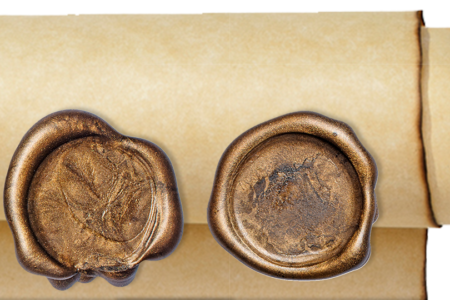


Two of the answers I specifically knew becausew of reading Elwood McQuaid’s book The Zion Connection and the other 2 I knew is because when I was in junior and senior school we had teachers who taught real, true and accurate history, world and US.
Thank you. Good interview as an evangelical I got 3 out of 4 questions. The last one had several factors, but the bottom line Hitler basically stole the Chancellor’s position.
And yes we are standing on Jewish history. As Romans 11 says.
Same here and ditto to everything you just said.
This message needs to get out to everyone. Christians need to stand side by side with their Jewish brothers and sisters and put an end to antisemetism. Holocaust studies are extremely important.